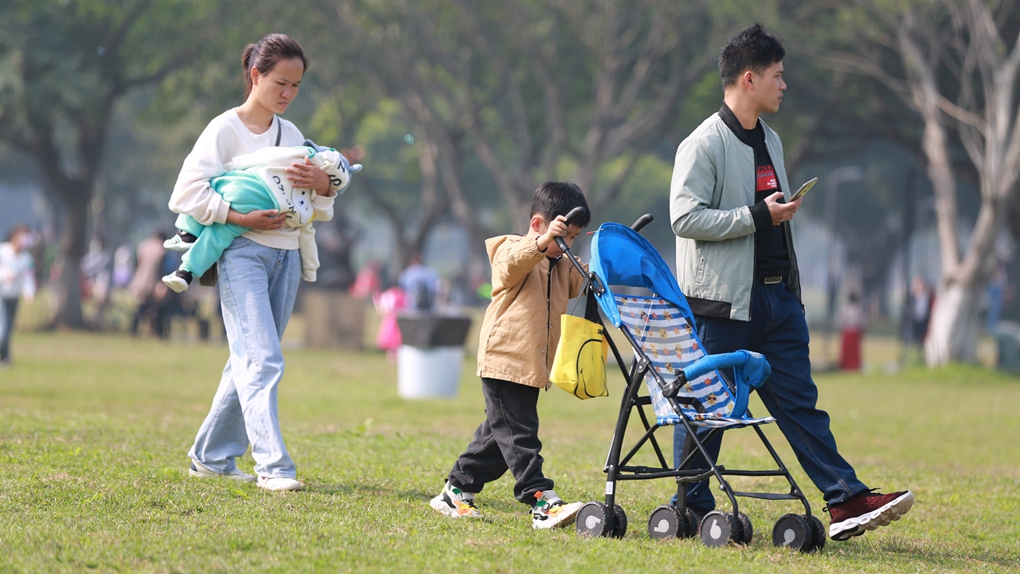
A family spends time together at a park in Haikou, Hainan Province, south China, February 12, 2021. /CFP
A family spends time together at a park in Haikou, Hainan Province, south China, February 12, 2021. /CFP
The Standing Committee of China's 13th National People's Congress (NPC) on Tuesday began its 30th session during which lawmakers will deliberate on several draft laws and amendments including the Population and Family Planning Law and Personal Information Protection Law.
One of the proposed changes to the Population and Family Planning Law is that couples would be allowed to have a maximum of three children instead of two, Zang Tiewei, spokesman of the Legislative Affairs Commission of the NPC Standing Committee, told a press conference on Friday.
Zang also talked of supportive policy measures, including provisions for parental leave and establishment of more nurseries for children in residential communities, public areas and workplaces. The amendment calls for comprehensive measures to optimize demographic structure and boost balanced population development in the long run, he said.
Zang said that articles not consistent with the three-child policy in the existing law would be removed during the revision.
The Population and Family Planning Law was enacted in 2002 and revised in 2015, when China's two-child policy was implemented.

The Cyberspace Administration of China said 33 mobile applications had violated regulations, with most of them collecting personal information irrelevant to their services. /CFP
The Cyberspace Administration of China said 33 mobile applications had violated regulations, with most of them collecting personal information irrelevant to their services. /CFP
Safeguarding personal information
A draft law on personal information protection is also under deliberation again at the NPC Standing Committee session after a second review in April.
The draft includes some rules on new technologies and applications that use personal data without consent to advertise services or products, Zang said.
For example, it targets apps that use artificial intelligence to analyze individual behavior, hobbies, income, health condition and credit status to offer services or products.
The draft stresses that individuals and organizations handling personal information should seek prior permission before collecting, storing or using people's data, Zang said, adding that even "those using automated programs need to follow the rules."
Furthermore, the draft identifies personal data of people under 14 as sensitive information, requiring information handlers to deal with it accordingly.
According to the proposed agenda, the NPC Standing Committee session will run until Friday.
(Cover: Children enjoy family time in Baise City, Guangxi Zhuang Autonomous Region, south China, May 28, 2021. /CFP)
(With input from Xinhua)

